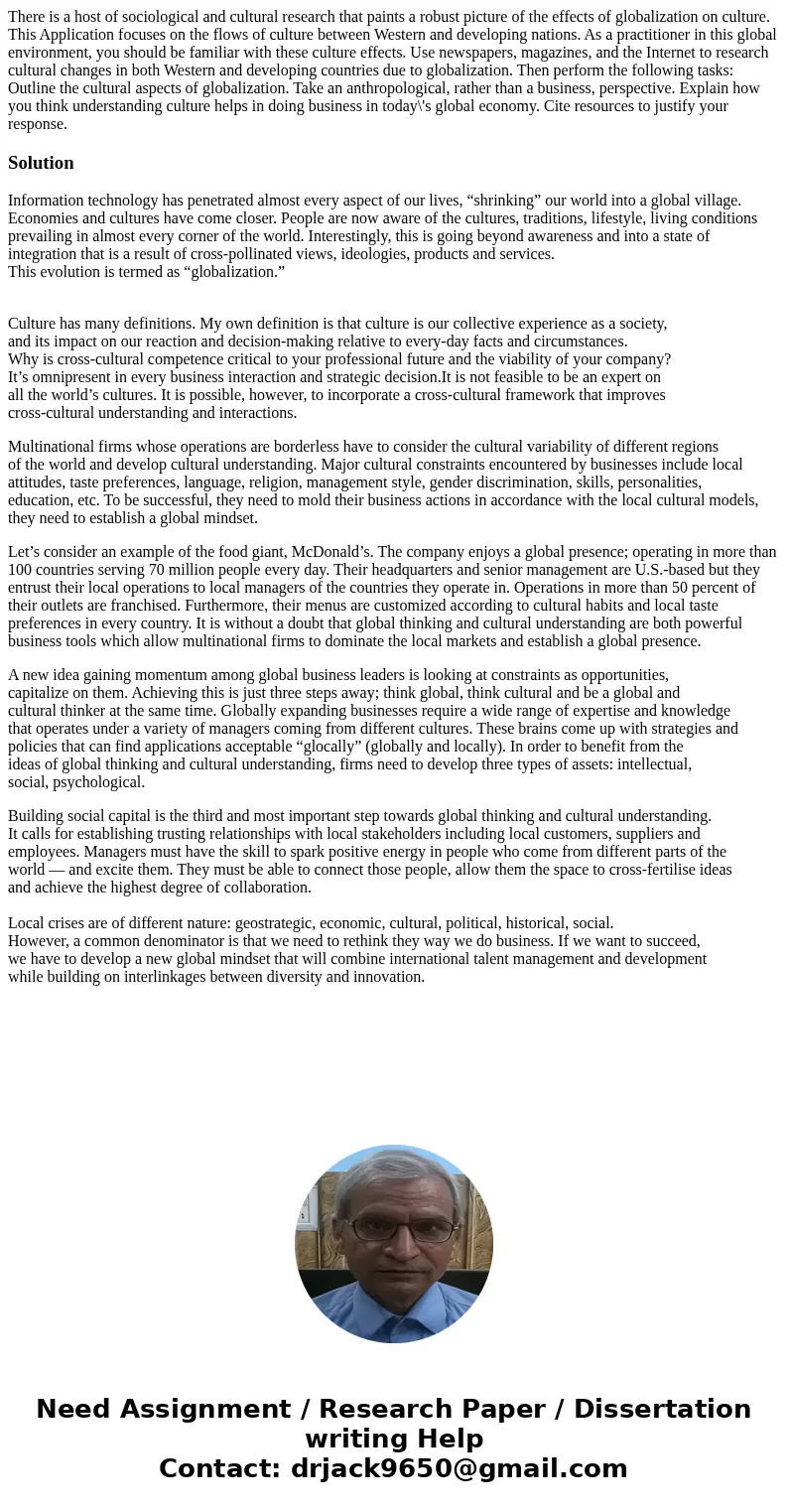There is a host of sociological and cultural research that p
Solution
Information technology has penetrated almost every aspect of our lives, “shrinking” our world into a global village.
Economies and cultures have come closer. People are now aware of the cultures, traditions, lifestyle, living conditions
prevailing in almost every corner of the world. Interestingly, this is going beyond awareness and into a state of
integration that is a result of cross-pollinated views, ideologies, products and services.
This evolution is termed as “globalization.”
Culture has many definitions. My own definition is that culture is our collective experience as a society,
and its impact on our reaction and decision-making relative to every-day facts and circumstances.
Why is cross-cultural competence critical to your professional future and the viability of your company?
It’s omnipresent in every business interaction and strategic decision.It is not feasible to be an expert on
all the world’s cultures. It is possible, however, to incorporate a cross-cultural framework that improves
cross-cultural understanding and interactions.
Multinational firms whose operations are borderless have to consider the cultural variability of different regions
of the world and develop cultural understanding. Major cultural constraints encountered by businesses include local
attitudes, taste preferences, language, religion, management style, gender discrimination, skills, personalities,
education, etc. To be successful, they need to mold their business actions in accordance with the local cultural models,
they need to establish a global mindset.
Let’s consider an example of the food giant, McDonald’s. The company enjoys a global presence; operating in more than
100 countries serving 70 million people every day. Their headquarters and senior management are U.S.-based but they
entrust their local operations to local managers of the countries they operate in. Operations in more than 50 percent of
their outlets are franchised. Furthermore, their menus are customized according to cultural habits and local taste
preferences in every country. It is without a doubt that global thinking and cultural understanding are both powerful
business tools which allow multinational firms to dominate the local markets and establish a global presence.
A new idea gaining momentum among global business leaders is looking at constraints as opportunities,
capitalize on them. Achieving this is just three steps away; think global, think cultural and be a global and
cultural thinker at the same time. Globally expanding businesses require a wide range of expertise and knowledge
that operates under a variety of managers coming from different cultures. These brains come up with strategies and
policies that can find applications acceptable “glocally” (globally and locally). In order to benefit from the
ideas of global thinking and cultural understanding, firms need to develop three types of assets: intellectual,
social, psychological.
Building social capital is the third and most important step towards global thinking and cultural understanding.
It calls for establishing trusting relationships with local stakeholders including local customers, suppliers and
employees. Managers must have the skill to spark positive energy in people who come from different parts of the
world — and excite them. They must be able to connect those people, allow them the space to cross-fertilise ideas
and achieve the highest degree of collaboration.
Local crises are of different nature: geostrategic, economic, cultural, political, historical, social.
However, a common denominator is that we need to rethink they way we do business. If we want to succeed,
we have to develop a new global mindset that will combine international talent management and development
while building on interlinkages between diversity and innovation.

 Homework Sourse
Homework Sourse